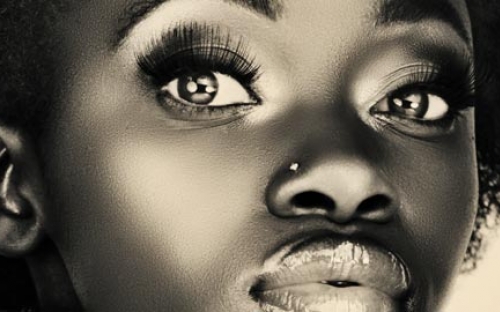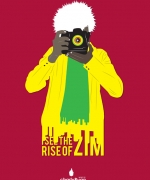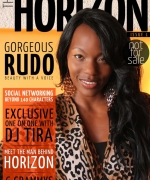Africa Now
There is something distinctly unreal about Africa in the way the continent was portrayed in TV shows I used to watch as a child and keep repeating themselves in my day as if I migrated to the foreign places whose names I only knew via the world Atlas. Somehow we figured that becoming other people, inheriting their culture and beliefs were the best way to measure progress. I often wonder at the difference between Johannesburg and downtown Brooklyn, or if a stranger can decipher our values by reading our magazines or watching our television programmes. While doing research for a clothing brand I am developing, a few questions constantly came up. What is Africa, what is the image of Africa? Where is its heritage? If we are what we feed our minds, what is it that I would like to feed these minds? Is there anything particularly African anymore? I have stopped watching Nigerian movies altogether because, for all the power this medium carries, I believe that more can be done to showcase Africa to the world in a more informative way.
If we are what we see, then what are we seeing, and through whose eyes? Perhaps the biggest failure by artists in Africa is in not recognising that the present is as important in the history of Africans as was the day Nelson Mandela got out of prison, or the day the conical tower at the Great Zimbabwe was erected. Even, when scholars at Timbuktu wrote their first scrolls or the day that the first slave was shipped off. We fail to realise that our actions are just as iconic as the Egyptian hieroglyphics, that the way we dress, the habits we embrace are as much of history as was any part of our past that we use to identify ourselves. We are the history that the future will read with laughter, tears, regret and anger just as we do now.
Being a Designer and Art Director, one of the hardest things for me has been to design with Africa in mind, to constantly try and remember what that is, whilst remaining aware that I am creating and recording history. That from this people will form values, opinions, lifestyles and cultures. We are story tellers, whether we accept it or not. The sooner we harness the power we have, the better. People are always listening to stories, if not ours then other people’s.
A viral YouTube video shows an African American pastor claiming that black people are not worthy of ruling anything and ruin everything they are in charge of. In one of his many misinformed statements he claims that Africa and the West Indies are worse off under black rulership: crime, war, political melt-downs being obvious reasons. It is when he claims that Africa historically never built a monument worth remembering, that I notice a bigger problem - Intelligence founded on false information. When people find and listen to stories, as with all things in life, they start retelling them, even those that are not a true representation of what has occurred. We have left it to everyone else to educate the world about our stories, while we remain silent.
Being ignorant of the face or image we are broadcasting of ourselves does not stop people from forming an opinion of us. Perhaps it is important to think of art, as a continuous conversation, rather than a set of skills people gather for themselves. Africans must think of themselves as story tellers, just like our forefathers who taught and learned through stories. The tools may have advanced, the artist may have changed, but the conversation should remain simple and continuous, should be engaging and self-reflecting. The only way we can truly retain our identity or even remember what it is, is to contentiously share it. At the end of my life, certainly as a designer, I hope people can look back, I hope I can look back and say I have told a story, which remains engrained in my psyche.
Whereas art in the Western world has played a huge part in educating, and establishing a people’s propaganda and identity, in Africa and in the West Indies much of our art has been for entertaining and leisure. We take for granted the impact and importance of imagery, literature, and the message we export. A good example is how Western films have an impact on social and moral values globally. A few Art Directors in Hollywood can change whole cultures and dictate the pace of that change, by understanding and embracing the fact that they are storytellers, and that people love to listen to stories, we are what we feed our minds. Being homosexual went from being taboo to being a human right, being educated became less important to having money, being popular even for a while is better than being talented. What we continuously fail to understand is the power of advertising, (yes it’s all storytelling and it works).
Somewhere along the line we need to remember the face we are wearing today, and what story it is telling. We need to be conscious of the significance of our actions on future history and we need to remain mindful of the fact that we are making history every day and that we will be remembered, not for what we intended to be, or the stories we wanted to tell, but for what we did say, or failed to say.





